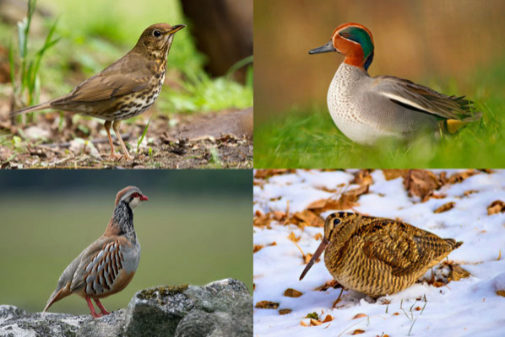- From the partridge in chocolate to the rabbit with snails.The irresistible pleasure of small game in autumn
The aromas and deep flavors of feather hunting , the protagonist of culinary autumn, invaded this page last week that reminded us of the classic autumnal pleasures in Spain. As the one who warns is not a traitor, we also warned that "for a second installment we will leave some more current and more controversial issues." And here comes that second installment: the Spanish tradition of small game, particularly feather hunting, is about to become a memory of a not-so-distant past , like that of those little angles that we could afford without asking for credit to the bank. Or worse: the eels, if paid, are still found. The scholarships and the cercetas are about to become one of those urban legends that the old propagate before the disbelief of the young.
In recent years, the availability of some of these precious birds for restaurants and good fans has almost completely disappeared. A danger of extinction is argued due to overexploitation , but curiously several of these precious winged bugs - scholarships, cercetas, thrush - are still enjoying their closed periods of closure, and in fact it is an association of hunters who has asked not to they can be sold to restaurants ... although they keep hunting them. As we know that in a whip a single shotgun is usually charged, not one or two pieces, but many more, we do not get to understand the opposition well.
Are these species threatened in a country with so many thousands of square kilometers of territory conducive to the development of hunting, or is it really a political response to complaints about resource depletion? Where are the studies that show that the cercetas or the scholarships are running out in Spain?
An organization that is trying to help establish the reality of hunting in Spain, the Artemisan Foundation, collaborates in studies that seem useful to know that reality. Thus, we have learned that the Hunting Federation of the Valencian Community in collaboration with the foundation and the General Directorate of Natural Environment and Environmental Assessment, belonging to the Ministry of Agriculture and Environment of the Valencian Community, has presented the RUFA-Cristóbal Torres project , an initiative that aims to recover populations of red partridge and other birds by conducting studies and practical research on habitat improvements and biodiversity conservation.
In another constructive initiative, the hunting societies of the Catalan Hunting Federation, the Artemisan Foundation and the Generalitat of Catalonia through the Department of Territory and Sustainability, and the Department of Agriculture, Livestock, Fisheries and Food will collaborate in the monitoring of the birds aquatic hunting of the Delta del Ebro .
The hunter societies of the Delta del Ebro will be integrated into the monitoring of the hunting birds of the Delta to better understand the status of bird populations locally and to adapt their hunting extraction to their conservation status. The project is focused on achieving that the hunting activity is based on scientific and technical knowledge of the species that allow a sustainable use of the resource . On the other hand, the involvement of hunters in the monitoring of hunting species can be a radical change in the development of new sources of information.
The project has set itself the following objectives: to develop a methodology that allows hunters to be included in the long-term monitoring of bird populations; obtain indicators of abundance of the common crouch and the water cock ; obtain indicators of hunting pressure and productivity; and carry out an analysis of the migratory phenology of the species of hunting birds of the Delta.
The Artemisan Foundation considers that one of the great problems of hunting is the lack of technical and scientific data that support the real state of hunting populations, which is why the Foundation is getting involved in different monitoring projects where hunters must charge a greater role not only in the management and use of their resources, but in the monitoring of their populations.
Meanwhile, surrealism will continue. In many restaurants we find that Scottish relative of the partridge grouse : as he is not raised in Spain and is legally imported, there are no problems . But when the best Spanish specialist in small game legally imports scholarships from Great Britain, Seprona shows up at a restaurant that serves them at lunchtime and sanctions him, suspecting that they are Spanish scholarships.
It is difficult to avoid the impression that the fashion of animalism prevailing in Spain is foreign to this witch hunt that is making the feather hunt of Spanish restaurants disappear. And the least that can be demanded is that we establish clearly if, in a country where wild boars are already strolling through urban gardens, there really is this borderline situation in small game, which makes one of our best chefs proclaim specialized in these traditional Spanish products: "I am about to throw in the towel and stop serving small game. This is a persecution as fierce as it lacks serious scientific support."
According to the criteria of The Trust Project
Know more- The Gourmet
- Gastronomy
The Gastronomic Of the partridge in chocolate to the rabbit with snails: the irresistible pleasure of the small game in autumn
The GastronómadaBeyond the gintonic: the madness for cocktails reaches the restaurants
GastronomóDel Manzanares al Loire: clandestine tour of France that does not appear in the Michelin guide

